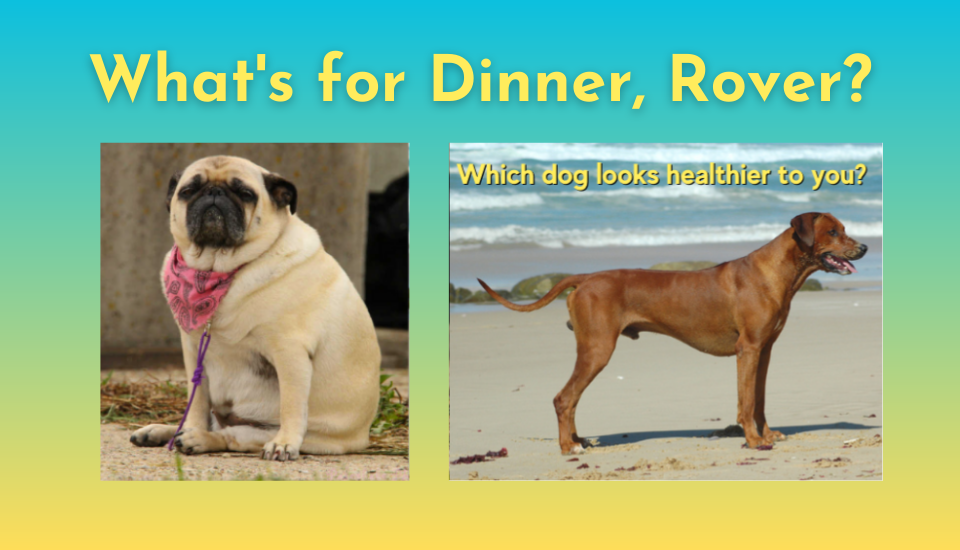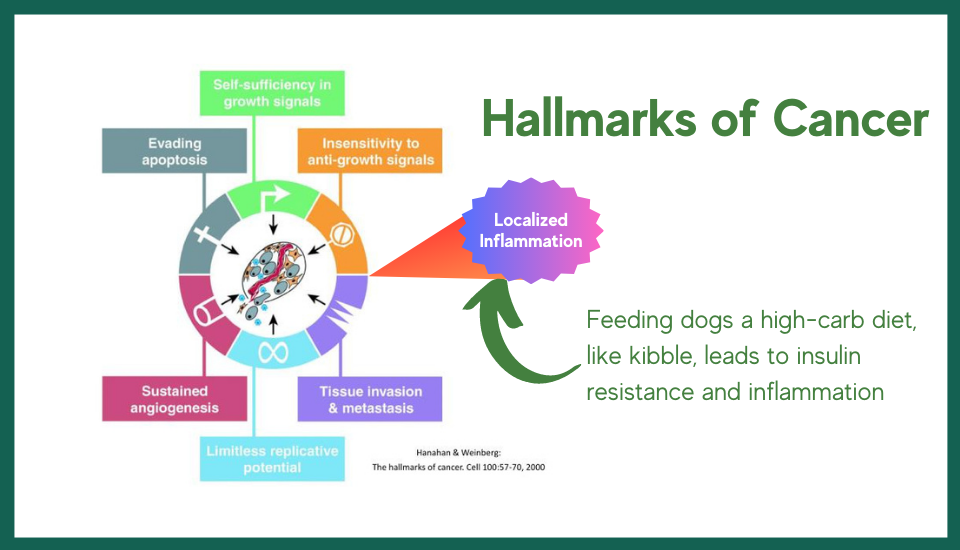Is there such a thing as a Miracle Cure for Cancer?
This short, inspiring video tells the story of a dog with an aggressive cancer who was cured by diet change alone.
I was cruising on Rodney Habib's great canine health resource, Planet Paws, and saw a short video that claimed to have cured a dog with hemangiosarcoma using diet change alone-- a "keto" diet to be specific.
Let's unpack this a little... and have some straight talk. We all love a story of hope! And I believe if there has been one miracle cure in the history, there can be another!!

Let's start with what is good and right about this story. Eating a species appropriate diet is the absolute cornerstone of helping pets with ANY chronic disease! Let me say that again-- Eating a species appropriate diet is the absolute cornerstone of helping pets with ANY chronic disease!

What is a species appropriate diet for dogs?
Well, science tells us that both wild dogs and domestic dogs, given free choice, get most of their nutrients from protein and fat. They get a vanishingly SMALL amount of energy from carbohydrates. That's because in the natural order of things, they are eating other animals, insects and maybe a little fruit.
The macronutrient ratio chosen by domestic dogs, across a wide range of breeds and ages, is:
30% Protein 63% Fat 7% Carbohydrates.
(Behav Ecol. 2013 Jan-Feb; 24(1): 293–304.)
In the inspiring video above, the dog eats a "keto-genic" diet and its tumors melt away. The term "keto-genic" comes from the human nutrition world, where someone restricts their carbohydrate intake so that cells must break down stored fat to get their glucose, with ketones as a by-product. For humans, this tends to be a fairly dramatic diet shift, and this strategy has proven effective for both weight loss and for helping cancer patients.
Guess what is the macronutrient profile of a canine "ketogenic" diet?
30% Protein 69% Fat 1% Carbohydrates.
Yes! A "keto" diet for dogs is almost exactly the macronutrient balance that ALL DOGS CHOOSE FOR THEMSELVES!

For many of our pets, eating fresh foods, mostly protein and fat, is a HUGE shift from what they have been eating, and can result in dramatic improvements in health.
While bags of dry dog food have beautifully photographed meats and vegetables on their wrappers, almost all kibble is greater than 50% carbohydrates. Dry dog food is ultra processed, high heat treated and preserved. All three of these manufacturing processes are associated with cancer and chronic disease!
Can a Keto diet cure MY dog's cancer?
I feel that this video is misleading. I have some protocols to treat hemangiosarcoma that very often lead to remission, and allow dogs to live much longer than conventional treatments offer, sometimes long enough to die of something else (this cancer typically affects late middle age or older dogs). Switching to a low/no carb, species appropriate fresh food diet is absolutely the cornerstone of all cancer care. But it would be truly miraculous to see a dog *cured* by that intervention alone.
Wouldn't you prefer to do more to "stack the deck" in your favor when fighting an aggressive cancer?
Related Posts
What's for Dinner, Rover?
People like to think of dogs as omnivores but scientific evidence does not support this!! In fact, before modern chemical and genetic analysis, no one would have dreamt of calling a dog...
Demystifying Cancer
Cancer is complex. But not beyond our understanding. In fact, when you understand the simple model above, it is clear how very effective...

411 Old Taughannock Blvd
Ithaca, NY 14850
USA
DVM Detective
Resources
© 2025 DVMDetective. All Rights Reserved.
Content on this website is not considered veterinary advice. Please see your veterinarian before making any medical or lifestyle changes for your pet.


